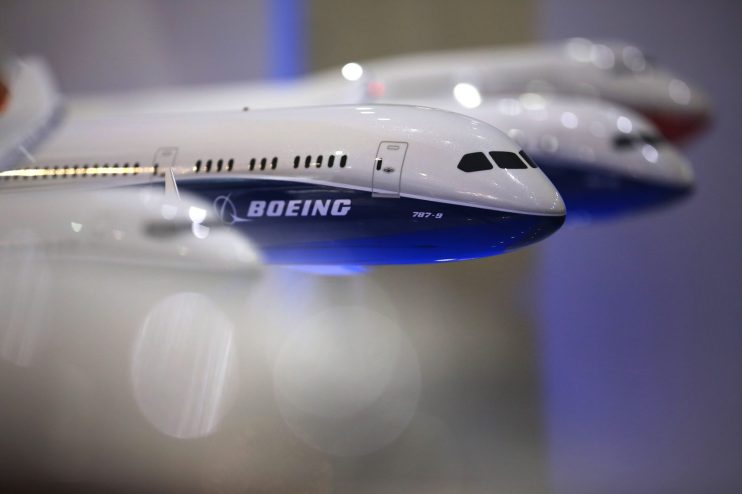Boeing confronts new turbulence as mid-air incident raises alarms

In the wake of a recent mid-air fuselage breach on a 737 Max, Boeing finds itself under increased scrutiny, triggering concerns about its ability to maintain a delicate equilibrium between accelerated production and product quality. The incident adds pressure at a pivotal moment for Boeing, awaiting approval for new models of its renowned MAX jet.
While fortunately devoid of serious injuries, the precautionary grounding of approximately 171 Boeing jets by U.S. aviation regulators has immediate repercussions, with Alaska Airlines cancelling 170 flights and impacting around 25,000 passengers. The U.S. Federal Aviation Administration’s directive to inspect the Boeing 737 MAX 9 further hints at potential disruptions in the coming week.
Equity analysts at Morgan Stanley, Kristine T Liwag and Ravi Shanker said “ramping-up production of the Boeing 737 MAX amidst a mounting list of quality issues may be more challenging than what the market expects. Balancing quality vs. quantity has been difficult for Boeing and will likely continue to be difficult. In our view, without significant improvement in quality control, a steep ramp-up in aircraft production would be unlikely and most importantly, imprudent.”
“We expect to see tactical pressure on Boeing’s stock price and that of the 737 MAX fuselage supplier, Spirit Aerosystems (SPR), on back of 737 MAX 9 incident…We expect the market to receive the Alaska Airlines incident negatively for Boeing and its fuselage supplier, Spirit AeroSystems. We remain an out of consensus ‘Equal-weight’ on Boeing as quality issues limit upside.”
This incident rekindles memories of the 737 Max grounding in 2019, prompting a 40% decline in Boeing shares while Airbus experienced a 25% surge. Morgan Stanley analysts expect a swift resolution to the current grounding, attributing it to a manufacturing/installation issue rather than a design flaw.
“We expect (this) to be resolved in a matter of days/weeks and not months/years as the issue appears to be a manufacturing/installation issue rather than a design issue as was the case related to the 2018 and 2019 737 MAX aircraft accidents,” Morgan Stanley analysts added.
Boeing’s response includes a company-wide safety meeting to address the mid-air incident and strategize preventive measures. The delicate balance between production speed and quality control is underscored, with the aviation industry closely monitoring Boeing’s commitment to rigorous safety protocols.
“At this point, we do not believe those inspections or any revision to how the 737 MAX-9 fuselages are made by Spirit Aero Systems as a supplier to Boeing will have a material financial impact on Boeing or its customers, and our $232 fair value estimate is unchanged,” noted Nicolas Owens, Equity Analyst at Morningstar.
“However, the dramatic nature of the flaw will have the effect of once again calling Boeing’s product governance into question by customers, regulators, and the flying public.”